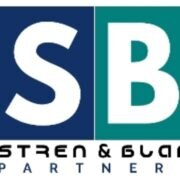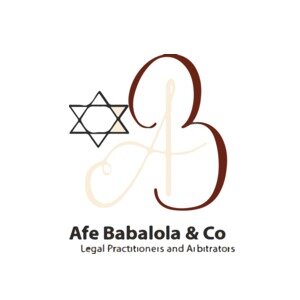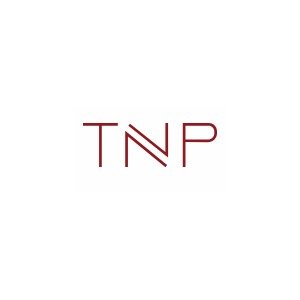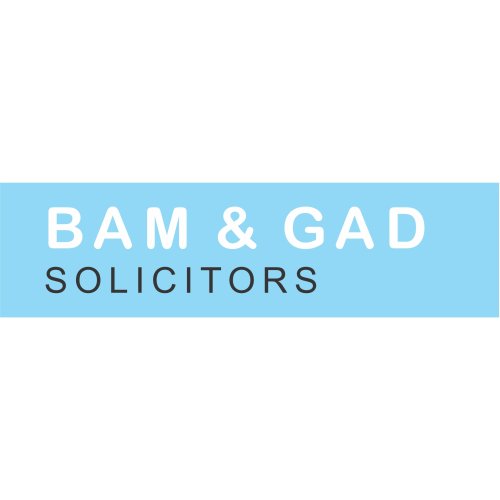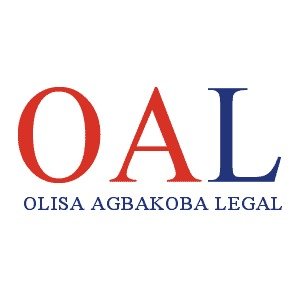Best Sanctions & Export Controls Lawyers in Lagos
Share your needs with us, get contacted by law firms.
Free. Takes 2 min.
List of the best lawyers in Lagos, Nigeria
Legal guides written by Adeola Oyinlade & Co:
- Procedure and Requirements for Work Permit and Visas in Nigeria
- The Step-By-Step Procedure of How to Apply for Microfinance Bank License Online in Nigeria
- How to Ensure the Smooth Recognition and Enforcement of Foreign Judgments in Nigeria
About Sanctions & Export Controls Law in Lagos, Nigeria
Sanctions and export controls are legal measures used by governments to regulate and restrict the movement of certain goods, technologies, and services across borders for reasons including security, public policy, and international obligations. In Lagos, Nigeria, these laws are critical due to the city’s role as a financial and commercial hub. Multiple Nigerian agencies regulate exports and enforce sanctions to ensure compliance with both domestic and international requirements. Noncompliance may result in strict penalties, criminal prosecution, and significant financial loss.
Why You May Need a Lawyer
Dealing with sanctions and export controls can be complicated. A lawyer’s expertise is often necessary in situations such as:
- Facilitating or advising on international trade transactions
- Navigating government investigations related to potential violations
- Understanding restrictions on trading with certain countries, organizations, or individuals
- Responding to allegations of illegal export activities
- Applying for and managing export licences
- Ensuring corporate compliance programs are sufficient and up-to-date
- Handling disputes or asset freezes arising from the implementation of sanctions
- Advising on sanctions imposed by foreign governments that affect Nigerian companies
- Preparing for audits by regulatory bodies such as the Nigerian Customs Service
- Developing proper documentation and recordkeeping for exports
Given the complex and multifaceted nature of export controls, timely legal guidance can help avoid costly mistakes.
Local Laws Overview
Nigeria’s framework for sanctions and export controls combines national laws, regulations from various authorities, and international commitments. Key aspects include:
- Nigerian Customs and Excise Management Act - the core legislation governing the import and export of goods
- Money Laundering (Prohibition) Act and Terrorism (Prevention) Act, prohibiting financial dealings with designated entities
- Central Bank of Nigeria directives that restrict transactions with certain countries or individuals
- National Export Promotion Council regulations on permitted exports and requirements for exporters
- Sector-specific rules for strategic goods like crude oil, arms, pharmaceuticals, and dual-use items
- Enforcement of United Nations Security Council sanctions in accordance with Nigeria’s international obligations
- Penalties for violations, including seizure of goods, fines, cancellation of licences, and possible criminal prosecution
Compliance requires careful attention to the evolving landscape of both domestic and international restrictions.
Frequently Asked Questions
What are sanctions and export controls?
Sanctions are legal restrictions that target certain countries, groups, or individuals, often for foreign policy or national security reasons. Export controls regulate the shipment or transfer of specific goods, technologies, or services outside Nigeria.
Who enforces these laws in Lagos, Nigeria?
Enforcement agencies include the Nigerian Customs Service, Central Bank of Nigeria, the National Intelligence Agency, and other regulatory bodies. International sanctions may also involve the Economic and Financial Crimes Commission (EFCC) and Nigerian Financial Intelligence Unit (NFIU).
What kinds of goods are subject to export controls?
Controlled goods often include arms and munitions, petroleum products, pharmaceuticals, agricultural produce, and any items considered “dual-use” with potential military or security applications.
How do I know if a transaction is allowed?
You should check current Nigerian laws and official lists of sanctioned persons and countries. It is advisable to consult with a qualified lawyer or compliance expert before proceeding.
Do international sanctions affect Nigerian companies?
Yes, sanctions imposed by foreign governments, such as the United States or European Union, can affect Nigerian companies if they trade internationally or use foreign banks, even if no Nigerian law is directly involved.
How do I apply for an export licence?
Licence applications are submitted to regulatory bodies such as the Nigerian Export Promotion Council or specialized agencies for certain goods. Documentation requirements and procedures must be strictly followed.
What are the penalties for breaching sanction or export control laws?
Penalties include fines, forfeiture of goods, loss of export privileges, revocation of licences, and criminal prosecution, depending on the nature and seriousness of the violation.
Can a lawyer help if my goods are detained at Lagos ports?
Yes. A lawyer can represent your interests, liaise with authorities, and help resolve detentions or seizures due to suspected violation of sanctions or export controls.
Are there any reporting requirements before exporting goods from Nigeria?
Yes. Exporters are required to complete documentation through the Nigerian Export Proceeds (NXP) Form and comply with any sector-specific regulations.
Where can I access lists of sanctioned individuals or entities?
Lists are published by relevant Nigerian authorities, and may also be available via the United Nations, Central Bank of Nigeria, and the Nigerian Financial Intelligence Unit.
Additional Resources
For further information or advice regarding sanctions and export controls in Lagos, Nigeria, consider reaching out to the following:
- Nigerian Customs Service: Handles customs laws, export controls, and trade enforcement
- Central Bank of Nigeria: Publishes notices on currency control, financial sanctions, and blacklists
- Nigerian Export Promotion Council: Guides exporters regarding compliance and licencing
- Economic and Financial Crimes Commission (EFCC): Investigates money laundering and sanctions breaches
- Nigerian Financial Intelligence Unit: Monitors financial transactions for compliance with international sanctions
- Private law firms with expertise in international trade and regulatory compliance
Next Steps
If you believe you require legal help relating to sanctions and export controls in Lagos, Nigeria, take the following steps:
- Collect all relevant documents involving your export or trade activity
- Make a detailed note of your situation and any communications with authorities
- Consult a lawyer or legal firm with specialist expertise in sanctions and export controls
- Follow your lawyer’s advice regarding compliance, communication, and resolution strategies
- Stay updated on changes to the law and engage with professional bodies or government agencies as needed
Taking prompt, informed action is the best way to reduce legal risks and protect your interests in matters involving sanctions and export controls.
Lawzana helps you find the best lawyers and law firms in Lagos through a curated and pre-screened list of qualified legal professionals. Our platform offers rankings and detailed profiles of attorneys and law firms, allowing you to compare based on practice areas, including Sanctions & Export Controls, experience, and client feedback.
Each profile includes a description of the firm's areas of practice, client reviews, team members and partners, year of establishment, spoken languages, office locations, contact information, social media presence, and any published articles or resources. Most firms on our platform speak English and are experienced in both local and international legal matters.
Get a quote from top-rated law firms in Lagos, Nigeria — quickly, securely, and without unnecessary hassle.
Disclaimer:
The information provided on this page is for general informational purposes only and does not constitute legal advice. While we strive to ensure the accuracy and relevance of the content, legal information may change over time, and interpretations of the law can vary. You should always consult with a qualified legal professional for advice specific to your situation.
We disclaim all liability for actions taken or not taken based on the content of this page. If you believe any information is incorrect or outdated, please contact us, and we will review and update it where appropriate.







